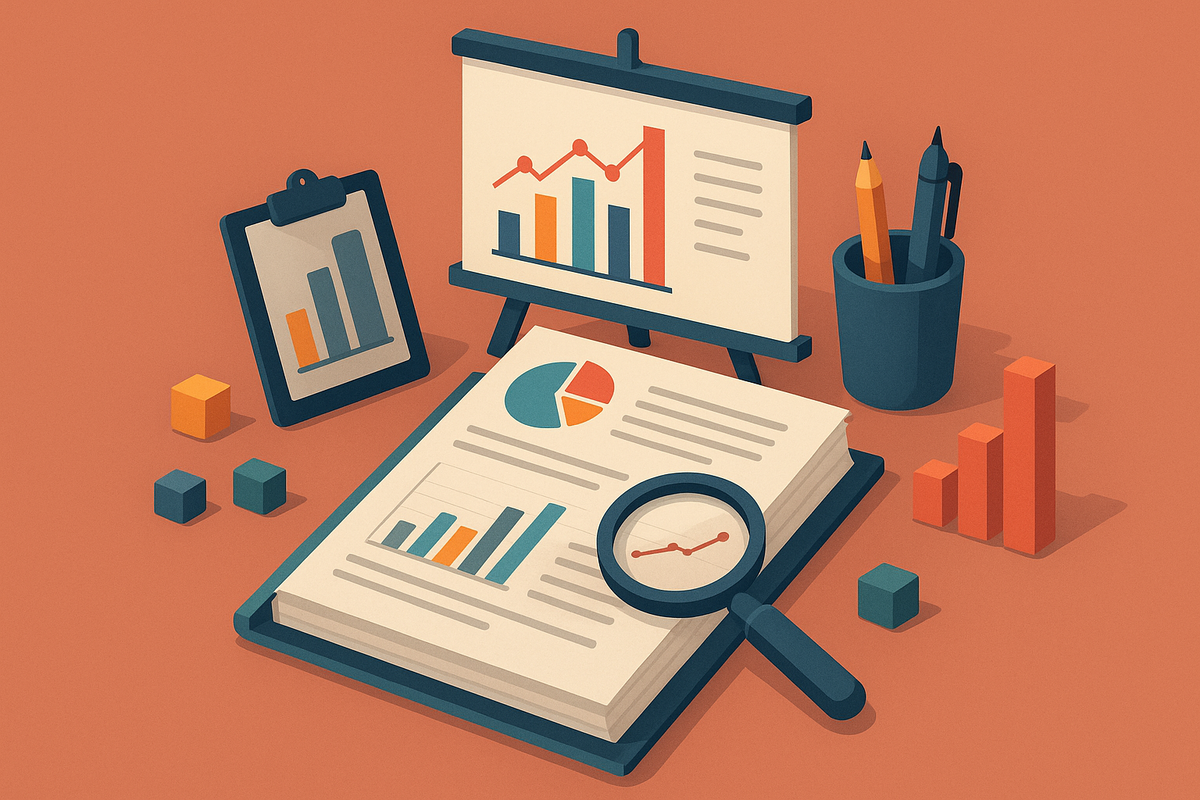In 2025, B2B marketers face an environment where decision-makers are overwhelmed by content. To stand out, businesses must create whitepapers that combine authoritative data with compelling storytelling.
Data-driven storytelling transforms whitepapers from mere informational documents into powerful tools for engagement and lead generation, helping brands educate prospects while driving conversions.
Why Data-Driven Storytelling Works
Storytelling has always been a powerful communication tool. When combined with credible data, it becomes even more persuasive:
-
Engages the Reader: Stories create context and relatability, helping readers understand complex concepts.
-
Builds Trust: Data-backed insights demonstrate expertise and authority.
-
Drives Action: Combining insights with actionable recommendations encourages readers to act.
-
Enhances Recall: Audiences retain information better when it’s part of a narrative.
A whitepaper that tells a story using real-world data creates a lasting impression and higher lead conversion rates.
Step 1: Start with the Right Data
Data is the backbone of your whitepaper. Sources may include:
-
Industry reports and studies
-
Company research and surveys
-
Benchmarking data and analytics
Best Practices:
-
Verify the credibility of every data source
-
Use visuals like charts and graphs for clarity
-
Focus on data that aligns with your audience’s pain points
Step 2: Create a Compelling Narrative
Once you have your data, craft a story around it:
-
Introduce the Challenge: Begin with a problem or opportunity your audience faces.
-
Present Insights: Use your data to explain trends, challenges, and solutions.
-
Show Actionable Recommendations: Guide readers on how to implement strategies.
-
Highlight Real-World Examples: Case studies or examples make the story relatable.
This narrative approach keeps readers engaged while subtly leading them toward conversion.
Step 3: Visualize the Data
Data visualization is key to comprehension and engagement:
-
Interactive charts and graphs
-
Infographics summarizing key findings
-
Highlighted metrics and KPIs
-
Flowcharts showing processes or frameworks
Visual elements make complex data digestible, enhancing engagement and the likelihood of downloads.
Step 4: Optimize for Lead Generation
Data-driven storytelling works best when paired with strategic lead capture:
-
Landing Pages: Feature key takeaways and a compelling CTA.
-
Gated Content: Request only essential information to reduce friction.
-
Follow-Up Nurturing: Send automated emails or additional resources to prospects post-download.
Step 5: Promote Across Channels
Distribution determines the effectiveness of your whitepaper:
-
Email Campaigns: Segment lists by industry or role for personalization.
-
Social Media & LinkedIn Ads: Target decision-makers and influencers.
-
Content Syndication: Reach qualified audiences through trusted networks.
-
Website Integration: Embed CTAs and highlight related content to encourage downloads.
Repurposing whitepaper content into blogs, infographics, or webinars can further extend reach.
Case Study: Data-Driven Whitepapers in Action
A marketing analytics company produced a whitepaper titled “The State of Predictive Analytics in B2B Marketing 2025”:
-
Leveraged survey data from 500+ businesses
-
Created a narrative highlighting common challenges and best practices
-
Included interactive charts and visualizations
Results in 4 months:
-
1,600+ qualified leads captured
-
40% higher engagement compared to previous static whitepapers
-
35% of leads converted into demo requests
This demonstrates how data-driven storytelling significantly improves engagement, lead quality, and conversion.
Best Practices for 2025
-
Combine Data and Narrative: Ensure the story enhances, not replaces, the insights.
-
Focus on Relevance: Data should align with the audience’s challenges.
-
Keep It Visually Engaging: Use charts, tables, and interactive elements.
-
Use Multi-Channel Promotion: Syndication, email, social, and website integration are key.
-
Track Performance: Metrics like downloads, engagement, and conversions guide optimization.
Conclusion & CTA
Data-driven storytelling transforms whitepapers into powerful lead generation tools. By combining compelling narratives, actionable insights, and visual data, B2B marketers can educate their audience, build trust, and drive high-quality leads.
Take your whitepapers to the next level—distribute your content and capture qualified prospects with Whitepaper Syndication Services today.
You May Also Like: B2B Content Syndication in 2025: Boost Leads, Visibility & ROI

